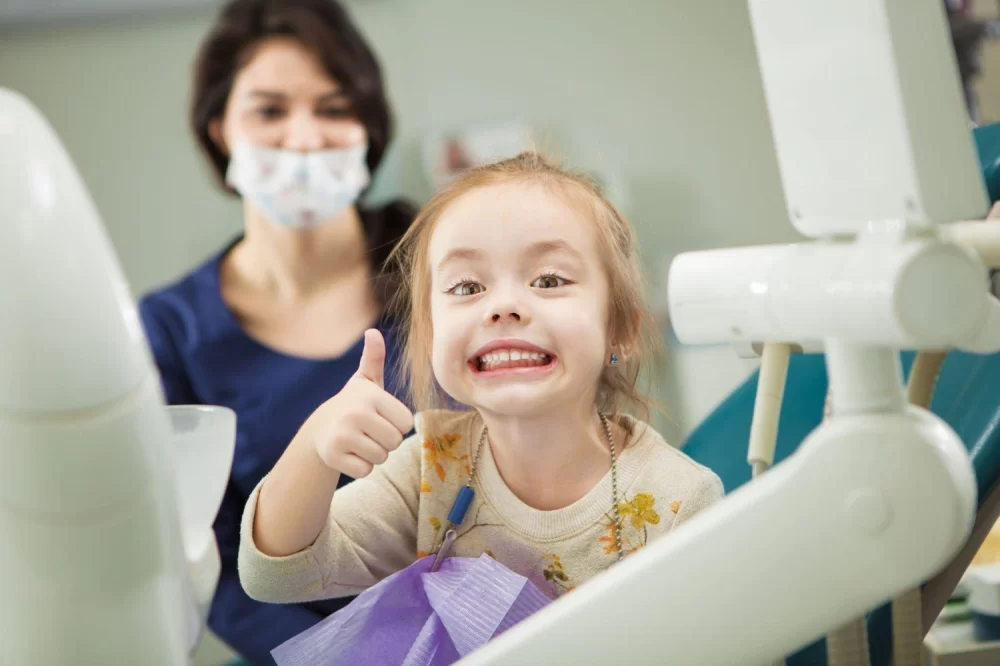
How to Keep Your Toddler's Teeth Healthy: Essential Tips for Parents
As a parent, one of your top priorities is ensuring your child’s well-being. This includes their dental health, which is something we may often overlook until we notice a problem. But taking care of your toddler's teeth early on is vital to prevent future oral health issues. Trust me, starting good oral hygiene habits at an early age can set your child up for a lifetime of healthy teeth and gums. Let’s dive into some simple, effective, and fun ways to care for your little one’s teeth!
1. Start Early: The Importance of Baby Teeth Care
You might be surprised to learn that dental care should begin even before your child’s first tooth appears. According to pediatric dentists, gently wiping your baby’s gums with a soft cloth after feedings helps remove bacteria and sugars that could lead to cavities. When their first teeth do appear, usually around 6 months old, that’s the signal to start brushing, even if it’s just with a small, soft-bristled brush and water.
I’ll never forget the first time my son got his little tooth! It was an exciting moment, but I was also a bit nervous about the responsibility of caring for that tiny, new tooth. So, I did some research and found that using a smear of fluoride toothpaste (about the size of a grain of rice) is recommended once their first teeth emerge. It was reassuring to know that such small steps could make a big difference in his long-term dental health.
2. Make Brushing Fun: Turning it Into a Game
Getting your toddler to brush their teeth can be a challenge. Trust me, I know how hard it can be when your little one refuses to sit still for two minutes. One of the best things you can do is make brushing a fun activity. Try using a toothbrush with their favorite cartoon character, or even turn the act of brushing into a fun song or dance. For example, I made up a little “tooth-brushing song,” and it worked wonders in getting my son excited to brush his teeth!
Another great idea is to allow your child to choose their toothbrush and toothpaste. Letting them pick out a toothbrush that appeals to them (even if it's sparkly or has a favorite character) can make the process feel more like a treat than a chore. This involvement makes them more invested in their oral health from a young age.
3. Set a Good Example: Brush Together
Children are keen observers, and they tend to mimic their parents. If you want to ensure that your toddler adopts healthy oral hygiene habits, it’s essential to lead by example. I made a habit of brushing my own teeth at the same time as my child, and it became a fun, bonding routine. We’d both brush our teeth together, and I’d even make silly faces in the mirror while brushing—this helped break any tension and made brushing time something we both looked forward to.
Brushing as a family not only reinforces good habits but also creates a positive atmosphere around oral care. It also teaches your child the importance of brushing twice a day, even if it’s just for two minutes.
4. Don’t Forget Flossing: It's Never Too Early to Start
Flossing is often overlooked in toddler dental care, but it’s an important step in maintaining healthy teeth. Once your child’s teeth begin to touch, usually around age 2, it’s time to introduce flossing. While it might seem tricky at first, using floss picks designed for young children makes the process easier. I remember when my daughter’s teeth began to touch, and I was nervous about the flossing process. But I discovered that using a gentle approach and making it part of our morning routine helped her get used to the feeling of floss between her teeth.
Flossing is essential to remove food particles and plaque that can cause cavities in between the teeth—areas that a toothbrush simply can’t reach. By introducing flossing early, your child will grow up understanding that this is just as important as brushing.
5. Limit Sugary Snacks and Drinks
We all love to treat our little ones to snacks, but too much sugar can be harmful to their dental health. Sugary foods and drinks can lead to cavities and tooth decay, as sugar feeds the bacteria in the mouth that create plaque. Try to limit sugary snacks and sodas, and instead, opt for healthier options like fruits, vegetables, and cheese. Water is also a great option to keep your child’s mouth hydrated and rinse away food particles. I found that replacing juice with water not only helped my kids' teeth but also kept them healthier overall.
Additionally, avoid putting your child to bed with a bottle of milk or juice. The sugars in these drinks can sit on their teeth overnight, increasing the risk of cavities. I made sure to offer a small, healthy snack and water before bedtime to keep their teeth clean overnight.
6. Regular Dental Checkups: Why They Matter
Even if you follow all the above tips, it’s still important to schedule regular dental checkups for your child. The American Academy of Pediatric Dentistry recommends that a child’s first dental visit should occur by their first birthday. Regular visits help detect potential issues early, prevent dental problems, and ensure that your child’s teeth are developing properly. When I took my son for his first checkup, I was pleasantly surprised at how comfortable and even enjoyable the experience was for him. The dentist was gentle, and my son enjoyed the colorful office space.
Routine visits also allow your child to become familiar with the dentist, reducing any anxiety they may have in the future. It’s all about making dental care feel like a normal part of life, not something to be feared.
7. Teaching Your Child the Importance of Oral Health
As parents, we have the incredible opportunity to teach our children the value of good oral hygiene. The earlier they learn about the importance of brushing, flossing, and eating healthy foods, the more likely they are to carry those habits into adulthood. And while dental care may seem like a mundane part of your routine, I’ve found that making it fun, engaging, and part of our family life goes a long way toward shaping a positive attitude toward oral health.
Over time, as my children got older, they became more independent in their dental care, and it’s rewarding to see them taking responsibility for their own smiles. By following these simple, practical steps, you’re setting your child up for a lifetime of healthy teeth and gums. I hope these tips help make dental care an easier, more enjoyable part of your daily routine, just as it did for me!







 Community Health Centers4.0 (206 review)
Community Health Centers4.0 (206 review) Hawthorne Dental Associates5.0 (463 review)
Hawthorne Dental Associates5.0 (463 review) The Pediatric Dental Group Milford4.0 (655 review)
The Pediatric Dental Group Milford4.0 (655 review) La Verne Dental Group4.0 (220 review)
La Verne Dental Group4.0 (220 review) Chandler Dental Arts4.0 (715 review)
Chandler Dental Arts4.0 (715 review) University of the Pacific, Arthur A. Dugoni School of Dentistry3.0 (261 review)
University of the Pacific, Arthur A. Dugoni School of Dentistry3.0 (261 review) The Importance of Oral Health Education During Pregnancy for a Healthy Pregnancy
The Importance of Oral Health Education During Pregnancy for a Healthy Pregnancy Best Tips for Brushing Your Teeth Properly for Healthy Gums: Essential Techniques for Oral Health
Best Tips for Brushing Your Teeth Properly for Healthy Gums: Essential Techniques for Oral Health Why Skipping Dental Checkups Can Lead to Bigger Oral Health Problems
Why Skipping Dental Checkups Can Lead to Bigger Oral Health Problems Advantages of Porcelain Dental Restorations
Advantages of Porcelain Dental Restorations How Can Diabetes Cause Tooth and Gum Problems? Preventing and Managing Oral Health Issues
How Can Diabetes Cause Tooth and Gum Problems? Preventing and Managing Oral Health Issues Healthy Habits for Promoting Good Oral Health and Hygiene: Tips for a Healthy Smile
Healthy Habits for Promoting Good Oral Health and Hygiene: Tips for a Healthy Smile